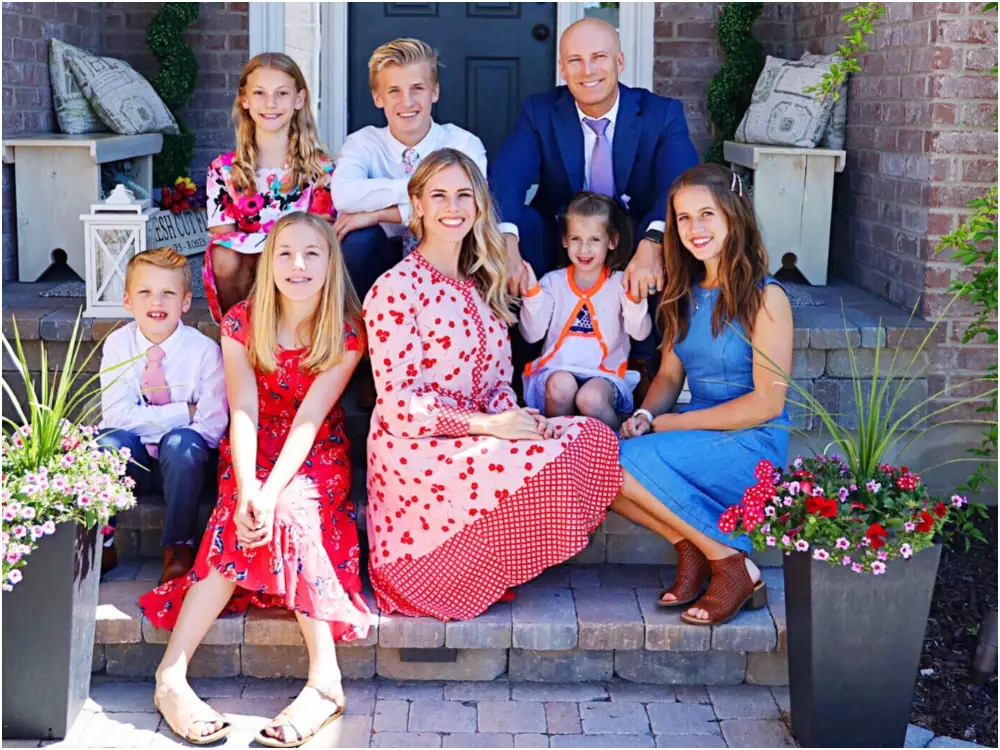On Aug. 30, family vlogger Ruby Franke, who ran the popular YouTube channel “8 Passengers,” was arrested on aggravated child abuse charges after her 12-year-old son climbed out of a window and pleaded for neighbors to give him food and water, court documents showed.
According to a Santa Clara-Ivins Public Safety Department press release, when authorities found her son, he was “emaciated and malnourished, with open wounds and duct tape around the extremities.”
“It is really unexpected to see that family vloggers are being arrested,” Dora Shen (11), an avid YouTube watcher, said. “Family vloggers are usually seen to be the most role model-like for people, so to see them being exposed for things like child abuse is disappointing.”
Franke launched her YouTube channel back in 2016 to share her family life—comprised of her six children, her husband, and herself—and gathered more than 2 million subscribers before the channel was deleted for unknown reasons earlier this year.
However, as her vlogs began to gain more traction, viewers raised concerns about her harsh treatment of her children. For example, she revealed that she took away her son’s bedroom as punishment for pulling pranks on his younger brother and that she refused to drop lunch at her daughter’s kindergarten when she had forgotten it.
According to Page Six, concerns over her videos prompted viewers to create a petition to send Child Protective Services (CPS) to her home. However, the case was dismissed due to insufficient evidence.
Her eldest daughter, Shari Franke, has since spoken out about her mother’s arrest.
“Today has been a big day. Me and my family are so glad justice is being served. We have been trying to tell the police and CPS for years about this, and so glad they finally decided to step up,” she said on her Instagram story.
This incident mirrors cases in child abuse, especially in South Korea, such as when a 12-year-old boy died to his injuries after being abused by his parents on Februrary.
According to the annual report by the Ministry of Health and Welfare, Korea’s child abuse cases have been on the rise in recent years. The number of identified child abuse cases rose from 30,905 in 2020 to 37,605 in 2021.
“I think it is definitely hard to know if child abuse is actively happening, especially with the parents, since it takes place in the house usually,” Emma Kim (12), AP Psychology student, said. “Since these cases can be hard to detect, they show the importance of frequent welfare checks and the need for children’s care from people outside of their families as well.”
This is true in Korea as, according to The Korea Times, out of the total child abuse cases in 2021, 31,486 cases, or 83.7 percent, were committed by parents. However, 84.6 percent of victims were returned to their homes, in accordance with the country’s Child Welfare Act, which states that authorities should support children’s return to their parents when they are separated.
According to The Korea Herald, experts say that although the awareness around child abuse is rising, child abuse is still being seen as a family issue rather than a crime.
“Asian parents are usually more strict and demanding of kids since the focus of Asian parents is on education for the child,” Steve Nave, Asian Studies teacher, said. “I feel like over time, this is going to loosen up because Korean parents went through a much different upbringing where they had to work really hard to have what they have. I think the way parents treat kids may change with the new generation because they did not have to struggle as much as the previous one.”


